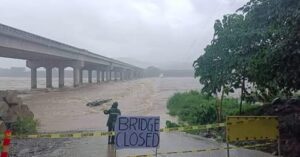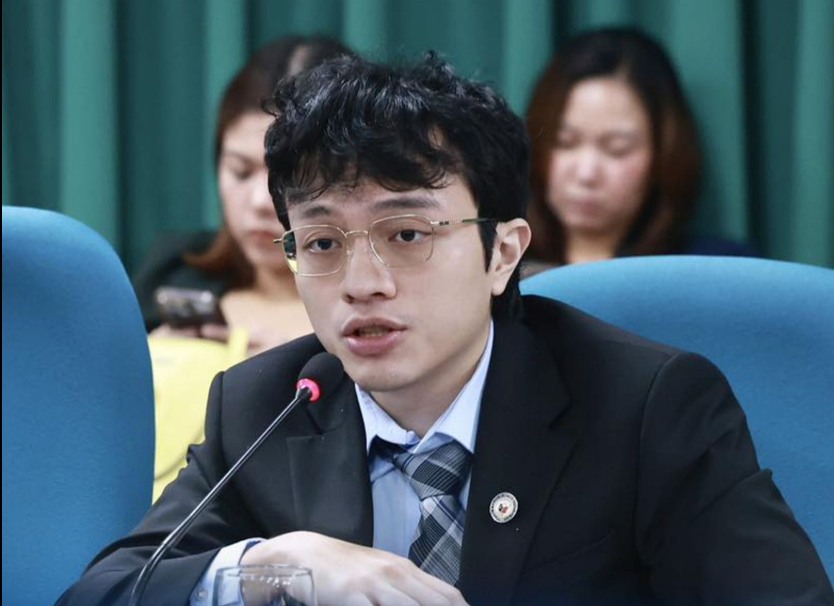By Diego Morra
The entire world must take pity on the Philippines, not only for suffering from the depredations of the ruling political dynasties and regimes notorious for plundering the country’s wealth, but also for the ultimate tragedy of being the most vulnerable country to typhoons, flooding, earthquakes, volcanic eruptions and the twin disasters of El Nino and La Nina, caused in no small part by the worst polluters in the world— the US, China, India and Russia— as carbon emissions, methane and other toxic chemicals from industry and agriculture pollute oceans, seas, lakes and rivers.
Writing on global risks, Olga Murray of the David Hume Institute of Edinburgh wrote in her Jan. 21, 2025 blog that the Philippines has maintained its status as the most vulnerable to environmental, climatic and seismic risks. Indeed, a magnitude 7.4 quake hit Davao Oriental just as another quake rattled Northern Luzon barely a week after a magnitude 6.9-temblor battered Cebu. They came as another typhoon was hitting the country. Disasters do not come in threes for the ill-starred nation. Man-made disasters are a dime a dozen, and they number more than 14,000, all ghost, incomplete and substandard flood control projects (FCPs.)
Indeed, the Philippines has become Ground Zero for the study of how corruption, negligence and lack of empathy by dynastic political rulers have made disasters a regular occurrence. Worse, flooding has become an occasion to enrich the pockets of grafters. The continuing investigations into the loss of billions of pesos for the FCPs show how the Philippine government, oh its own, has become deaf and blind to the plunder of annual public works appropriations. With the in camera inquiry being conducted by the purportedly Independent Commission on Infrastructure (ICI), the people are being denied their right to transparent proceedings and their right to know where the taxes they paid went. The ICI was supposed to be fair but by keeping their probe out of the public eye, its leaders protect the usual suspects, who have become more equal than 115-million Filipinos. Haven’t they learned what Erasmus meant when he said “Primum a capite foetet”? The fish rots from the head down.
Commenting on the Global Risks Report, Murray, who founded the civil society group Private Goodness, said “the report concludes most severe risks over the next two years are misinformation and disinformation, extreme weather events, state-based armed conflict and societal polarization. While over the 10 years, the top four severe risks are all environment-related: Extreme weather events, biodiversity loss and ecosystem collapse, critical change to Earth systems and natural resource shortages (underscoring supplied.)” She noted that last year, six of the nine “planetary boundaries” for environmental health were crossed, threatening the seventh. These boundaries, she argued, are critical in maintaining the stability of the world’s life support system and the viability of economies.
Today, the world must have recognized the country’s vulnerability, something that the United Nations (UN) had long regarded as the basis for the First World to support the country financially, along with Pacific island nations are under threat of sea level rise, as they bear the brunt of nature’s wrath as capitalist countries refuse to reduce their carbon emissions and the use of coal and other fossil fuels, all of which contribute significantly to global heating. The US has been a deadbeat as regards funding climate change initiatives and with Donald Trump at the White House, science and common sense will have to take the backseat. He doesn’t profit from championing the cause of humanity and ecological defense.
On Friday, organizations from Asia-Pacific, Europe and the Americas launched “Grounding Solidarity: A Learning and Solidarity Mission to Communities Affected by Climate Injustice and Militarism.” From Oct. 11 to 15, mission members will be visiting Southern Tagalog, and Eastern and Western Visayas to investigate the gravity of the overlapping crises of environmental destruction worsened by corporate plunder, graft and corruption and militarization. They will engage with farmers, fisherfolk, indigenous peoples and disaster survivors resisting displacement by mining, dam, and so-called “green” development projects that threaten their lands and livelihoods. The foreign participants will see directly the impact of disasters exacerbated by heartless lawmakers and bureaucrats who profit from public works projects while people drown, lose their livelihoods and deprived of their future.
The delegates come from the following organizations: Peoples Rising for Climate Justice (PRCJ); Asia Pacific Network of Environmental Defenders (APNED); Indigenous Peoples Movement for Self Determination and Liberation (IPMSDL); Oilwatch – Southeast Asia (OWSEA; People’s Coalition on Food Sovereignty (PCFS); Asia Pacific Research Network (APRN); Asia Peasant Coalition (APC); Asia Pacific Forum on Women, Law, and Development (APWLD); International Coalition for Human Rights in the Philippines (ICHRP), and; Ibon International. Their local partners are: Kalikasan – People’s Network for the Environment (KALIKASAN – PNE); Center for Environmental Concerns-Philippines, Inc (CEC); Karapatan; Kilusang Magbubukid ng Pilipinas (KMP); Alliance of Indigenous Peoples Organizations in the Philippines (Katribu); Promotion of Church People’s Response (PCPR); Youth Advocates of Climate Action Philippines (YACAP), and; Samasang Operasyong Sagip (SOS.)
The Grounding Solidarity Mission forms part of a larger event leading to the Asia Pacific People’s Conference on Climate Imperialism and Militarism to be held in Manila on October 16–17. The conference will tackle the struggle for climate justice, sovereignty and lasting peace and craft viable approaches to stop environmental plunder and prevent the despoliation of natural resources to benefit oligarchs, monopoly capitalists and their political allies. These efforts also build momentum toward COP30 Amazonia in Brazil, where global movements will push for genuine people-centered climate solutions rooted in justice and solidarity, organizers said.




